In his classic memoir On Writing, Stephen King writes, “If you want to be a writer, you must do two things above all others: read a lot and write a lot.”
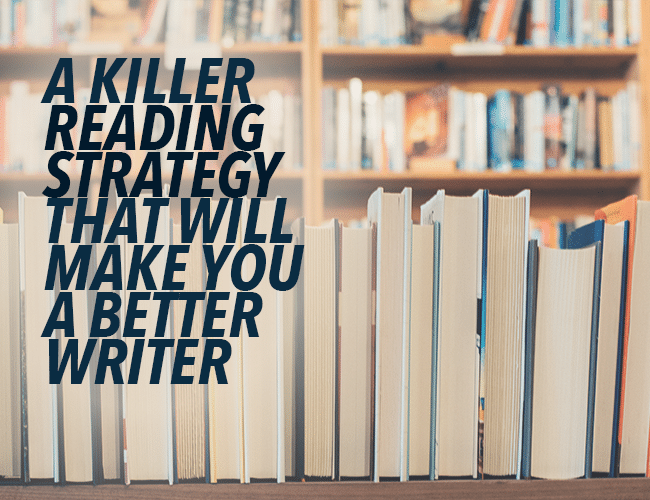
The latter is, of course, what this blog is all about (writing a lot). But I’m convinced that most writers ignore the former: reading a lot. (Or at the very least, they don’t read thoughtfully.)
If you’re like most people, you bounce from book to book haphazardly. What you read from month to month and year to year is simply not something you carefully consider.
Or maybe you’ve gone through a season without reading any books at all. If that’s the case, you’re definitely not alone. In 2014, the Pew Research Center reported that nearly a quarter of American adults had not read a single book in the past year.
But if you call yourself a writer and your goal is to become a better one, you do yourself a great disservice by not reading voraciously and thoughtfully.
No one puts it more bluntly than King himself:
So what’s the answer? As writers, how can we become better readers?
4 Reasons to Plan Your Reading in 2017
Here’s my solution: plan your reading. And just in case you’re skeptical, let me give you four quick reasons why you should make a book list and map out your reading:
1. You’ll Read More Books
If you plan your reading, you’re pretty much guaranteed to read more than you did last year. Why? Because if you take the time to pick out twenty to fifty books you really want to read, it’ll create excitement and anticipation. As a result, you’ll spend more time reading!
2. You’ll Read Better Books
Sometimes when I’m picking out my next book to read, I’ll look around the house and see what’s available. This isn’t always a bad strategy, but unless you own a library like the one from Beauty and the Beast, you probably don’t have a huge store of books at your disposal. Planning your reading will help you think of books beyond your limited collection.
3. You’ll Be a Better Steward of Your Reading Time
Often when we think about stewardship, we think about financial resources. But we forget that time is one of our greatest resources. (Not convinced? Let this post give you a little perspective.)
Truth is, there’s simply not enough time in this life to read all the books in the world. So choose your books wisely! Planning your reading will help.
4. You’ll Become a Better Writer
This, of course, is one of the biggest reasons why writers should read: the more (and better) books we read, the better writers we’ll become.
Don’t believe me? Let’s consult a few of the greats.
“[Reading] good writing . . . teaches the learning writer about style, graceful narration, plot development, the creation of believable characters, and truth-telling.”
—Stephen King
“Read, read, read. Read everything—trash, classics, good and bad, and see how they do it. Just like a carpenter who works as an apprentice and studies the master. Read! You'll absorb it.”
—William Faulkner
And just in case you’re still not convinced, don’t forget this fun fact: Jonathon Franzen learned to write by reading, not through an MFA program.
A Killer Reading Strategy that Will Make You a Better Writer
Convinced you need to plan your reading but not sure where to begin? Here’s a simple reading strategy to get you started.
Pick 24 books to read this year.
That’s two per month—a very doable goal.
Read widely in your genre.
As a writer, you should know the ins and outs of your chosen genre. Shawn Coyne, author of The Story Grid, says that every genre has conventions and obligatory scenes. If you don’t know and use them, your story won’t work. And even if you want write the next The Sound and the Fury, you should probably start by grasping the basics of your genre first.
Read widely outside your genre.
Who wants to read the same stuff all the time? Mix it up! If you write children’s books, read classic literature. If you write business books, read comic books. By reading a wide range of books, you’ll dig a deeper creative well to pull from.
Read old books as well as new ones.
I started alternating between old books and newer books after hearing this quote from C.S. Lewis:
“It is a good rule after reading a new book, never to allow yourself another new one till you have read an old one in between.”
It’s easy to get caught up in what’s hot or in at the time, but we cannot ignore the books that have stood the test of time.
Try not to read more than a few books at a time.
I typically try to keep it between two to four books, each in a different category (fiction, narrative nonfiction, business, etc.). Some days I find myself in the mood for a good story, other days for a solid nonfiction book. It’s good to have options—just not too many or you’ll never finish any of them.
The Best Time to Start Planning Your Reading
If you don’t consider yourself much of a planner, I get it. I HATE planning things. But mapping out my reading for the year has become one of my favorite annual traditions.
If you make your book list and plan your reading, I promise you’ll read more books, better books, and most importantly—you’ll be a better writer for it. And the best time to start planning your reading is right now.
What books are you reading right now? What books are you planning on reading in 2017? Let us know in the comments.
PRACTICE
Take fifteen minutes to plan out your reading for the year. Remember to choose all different types of books—in your genre and outside your genre, old and new, fiction and nonfiction. Share your book list in the comments below, and let's all help each other develop some killer reading plans!
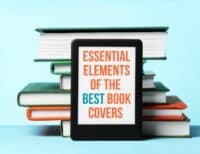
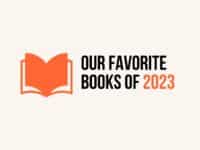
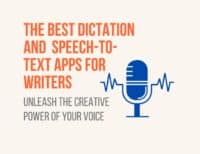
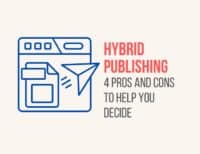



I’ve been reading James Patterson, C.J. Box, and C.J. Sansom. Boy! I’ve noticed how true this post is! Style is the main thing I’ve managed to mimic from the authors I mentioned, but I also was able to strengthen my “sense” of using punctuation/grammar correctly. Well done for bringing this up!
Thanks so much Rachel! Love hearing that. I’ve heard of Patterson, but not Box or Sansom. I’ll have to check them out!
I love reading challenges! So far this year of 2017 I have a list of books I have read in many genres, books in reviews added to my TBR list, and ones I have started. Yes, I read more than one book at a time including listening to another in my car. The advice to plan my reading list is a great one, but what do I do when I go to the library? I look at the Librarians’ Choices, I peruse the New Books shelves, and I check my reading journal for the books by favorite authors I haven’t yet read. One piece of writing advice I am considering is to read a book on the bestseller list even if it is garbage: a book that doesn’t interest me. A recommendation for the writers who are commenting on this post: Roy Peter Clark’s craft book called “The Art of X-Ray Reading: How the Secrets of 25 Great Works of Literature Will Improve Your Writing” (2015). My personal advice is to have fun reading all the genres that interest you, finding inspiration in the dialogue, pacing, plotting, structure and language from published authors. BTW, my 2017 list numbers 26!
Nice Beth! Thanks for sharing!
I have a 25 books reading list for 2017, made it in December, I am adding new books to it though 😉
Love that Mar! Here’s my rough list for the year: http://www.markrobertcasper.com/my-2017-reading-list/ It might make you add a few more!
I love your list! Very inspiring! We even have some books in common. Now I have a question: what do you do when you’re reading a book and NOT enjoying it?
I’ve been an avid reader since my first visit to the bookmobile when I was 7. Today, sixty years later, I still read 2-3 books a week. Like you, I always have one fiction and one non-fiction going so I can read to suit my mood, and read (or re-read) classic writers every couple months or so. Recently, as I’m writing stories for my grandchildren, I’ve added MG and YA books to my reading, pushing my book count up to 4-5 books a week, as they are pretty quick reads.
As for my current reading: Non-Fiction–Dead Wake by Erik Larson, Fiction–The American Girl (just finishing it, and I’m now done with the “girl” books), and MG/YA–The Higher Power of Lucky.
Thanks for this post. There’s nothing readers like more than a chance to talk books–well, except for reading, of course.
Wow! 4-5 books a week is seriously impressive! I average about 4 books a month. And I love that you write stories for your grandchildren! I’m hoping to write a few children’s books myself. Agreed! Bibliophiles, unite!
Those sound like great books! Here’s my rough reading list for the year: http://www.markrobertcasper.com/my-2017-reading-list/
When I saw your headline, I assumed you would be featuring Gabriela Pereira’s book DIY MFA as I just heard her discussing reading with purpose for writers on her podcast with Joanna Penn. She shares many of the tips you mentioned, plus a concrete example of how she constructed a reading list for herself when writing a MG book. Interesting stuff, and I fully intend on implementing this strategy.
Hey Lissa! That’s so cool! I’ve never heard of her book. I’ll check it out!
I’m a prolific reader and like to re-read the classics as well as keep up to date with modern authors. I agree it’s important to read non-fiction as well as fiction. The former extends my general knowledge and the latter my understanding of different ways of telling a story. The main thing is I’m always learning something new, vital for any writer.
So true Jeannie! Thanks for sharing!
Hey everyone! Thanks so much for your engaging comments. Love hearing your thoughts, feedback, and what books you’re reading. In case anyone’s curious, here’s what I’m reading this year! http://www.markrobertcasper.com/my-2017-reading-list/
While “reading makes you a better writer” is true in a more-or-less tautological way, this is a classic case of very old writing advice being reprinted again and again without critically questioning its relevance to the modern media use case. And why would anyone do so, either? Cheap self-help books sell like hot potatoes based on pretend insight alone.
What is true is that studying craftsmanship naturally improves one’s understanding of said craftsmanship. It can also motivate one to improve by imitation. However, let’s not forget one thing: this advice predates the existence of the internet and, indeed, personal computers. The average person in the year 2017 reads an incredibly huge amount of text every day compared to even academics fifty, a hundred, or two-hundred years prior. A lot of the practical use of reading – namely building arguments, getting used to ways of expression other than one’s own -is thus already covered.
Reducing “useful reading” to the study of full books doesn’t do the modern media landscape justice. There’s a lot of short-form fiction and non-fiction content out there. Even just perusing online discussions can be worthwhile. I am not saying that studying full literature doesn’t help – it’s definitely valuable – but I feel that writing advice columnists and authors should up their game in order to make their advice relevant in the 21st century.
Hey there! Yes, I totally agree. There’s a ton of great online content out there that’s absolutely worth reading. I’m a huge fan of long form journalism like The New Yorker, Grantland, and many others. Writers should absolutely integrate that kind of high-quality writing into their reading list as well.
A book list! I haven’t had one of those since I finished my undergraduate English degree. All right – here I go. 1) The Collected Short Stories of Louis L’Amour; 2) Dashiell Hammett’s The Glass Key; 3) Anton Chekhov’s The Cherry Orchard; 4) Willa Cather’s The Song of the Lark; 5) Perrine’s Literature, Short Stories, Chapters 1-9; 6) Lucile Payne’s The Lively Art of Writing; 7) The Creative Process, edited by Brewster Ghiselin; 8) Stephen Koch’s The Modern Library: Writer’s Workshop; 9) Damon Knight’s Creating Short Fiction; 10) Natalie Goldberg’s Writing Down the Bones; 11) Ursula Le Guin’s Steering the Craft; 12) Ursula Le Guin’s A Wizard of Earthsea. I think I’ll stop here for right now. I need more time to think about the next twelve.
Great list, Shauna! Thanks for sharing.
Here are a few more: 13) Joseph Conrad, Heart of Darkness (an old fav); 14) Orson Scott Card, Ender’s Game (another old fav); 15) New York Writers Workshop, The Portable MFA in Creative Writing; 16) Wallace Stevens, Collected Poetry and Prose; 17) Paul Badura-Skoda, Interpreting Bach at the Piano; 18) Ron Chernow, The Revolution. Six more left to choose.
I love this… I’ve been blogging for six years, but last summer I launched a new blog and began sharing what I’m reading each season. I realized quickly that I needed a plan. It’s made me a more balanced reader and I love how it is giving me confidence as a writer. I love the quotes from Stephen King and CS Lewis… Thanks for writing this!
You’re so welcome Kelly! I love that! Totally agree—a balanced reading list has given me more confidence in my writing as well.
Good post with a great suggestion about keeping a reading list every year. It does truly give you an incentive to increase your reading quota. I might suggest joining (like I did this year) the Popsugar Ultimate Reading Challenge, whose premise consists of a list containing 40 prompts where you pick a book that conforms to a particular prompt. This provides diversity and the chance to increase your reading. You can also join through the Goodreads group. If you want to check it out, here’s the link: http://www.popsugar.com/love/Reading-Challenge-2017-42561300
Thanks Claire! And great idea! I’ll check it out.
You’re welcome, Mark. I’m planning to continue doing this on a yearly basis.
This is a great post! i currently have 14 different books that I’m reading… sort of reading. I’m a slow reader and it dawned on me reading this post that there’s no way I’m going to finish reading any of them if I jump from one to the other. This has made me resolve to cut down the number of simultaneous books, draw up a list, and to write out a plan of what and when I’m going to read them.
I also think reading outside my genre is a great idea – not forgetting the poetry genre as well.
Thanks again. Very helpful post!
You got it Sean! I totally get it. I’ve often said that my guilty pleasure is starting a new book when I’m already reading too many as it is. This year I’m actually trying to read one at a time, and it’s been super helpful. Give it a try and see what you think!
It is a big world with many books. Thank you for presenting a method to manage that truth. I have taken over a half hour and only have chosen two books each month for March through July. It was an epiphany to choose one book in the genre in which I want to write and another to diversify my reading. I have been choosing my reading based on the time allotted to me by other people’ schedules when going to the local library or bookstore. A birthday gift of a Kindle Fire has given the luxury of time for my slow methods. I can’t emphasize enough how choosing my preferred writing genre and a diverse genre has lifted a burden from my overwhelmed sense of how big the book world is and how little time we have to explore it and add our own contribution to it.
Yes! I love this! What books did you choose?
This is something new that I’ve been trying (and succeeding at) this year. I picked out 12 books to read during the year. With school and work, I thought 1 per month would be amazing as I’ve been in a reading slump for over a year. I’d take any progress. Last month, I read one old biography for a school report, then I was really in the mood for newer fiction, so I started reading The 5th Wave. I finished that in a couple days and then read the second book in the series soon after. Two books in a month! I was so excited. Now, it’s March, and I’m going to finish the series and start on a new one. Maybe I’ll finally get around to reading the Harry Potter series for the first time this year… Oops!
Love hearing that Corryn! You can totally do it! My wife has been reading the Harry Potter series for the first time as well. She loves it! Also, if you’re low on time audiobooks are a great option as well.
I, too, have been in a reading slump for about the past three years. I have a list of categories that turn me off, so finding something that interests me is difficult. All of this means my reading is sporadic and mostly unsatisfying. To complicate things, I read slower than I would like, and my comprehension and retention rates leave me frustrated. The effect on my writing is profound as I don’t know in which genre my novel-in-progress belongs. I like the idea of creating a book list. I have a Wish List on my online book store. I also have an offline file folder loaded with titles and descriptions of books I want to read. I did not consider either of these lists as approaches for improving my reading. The suggestions in your post give me incentive and hope that I can enjoy reading again. Popsugar, suggested by Claire, also intrigues me—I will check it out. Reading two books a month is quite doable. Thanks for a great post.
You got it Biillie! Totally with you—I read pretty slow as well. But having a reading list has helped me tremendously. Here’s what I’m reading this year! http://www.markrobertcasper.com/my-2017-reading-list/
Hey I just wanted to share a website that offers free books with everyone. It’s http://www.openlibrary.com. this site offers all kinds of free books to read from classics to newer books. It doesn’t have everything but there is plenty to choose from and it’s all free. You just have to open a free account with them. I love it! Right now I’m reading City of Glass by Cassandra Claire and just finished up The New Girl by R.L Stine and just started Thinner by Stephen King. I will definitely start me a list soon!
This is great Ashley! Thanks for sharing. Did you mean https://openlibrary.org/ ?
Great suggestions here! This is the first year I actually planned out my reading – mostly because I have over 25 books I already own and haven’t gotten around to, some of them for years. I definitely found it enjoyable to plan out my reading for the year (I’ve even planned it out by month!) but I also left myself some room for any potential reading mood swings. So far I’ve read 20 books! Happy reading everybody!
Wow that’s amazing! Love that! Thanks for sharing!
I always enjoy plotting out my reading. I plan ahead for at least 3 months so I can keep up with new releases over the course of the year and I can be flexible. However, one book I recommend you add to any reading list is Francine Prose’s ‘Reading Like a Writer’. Once you get into the habit of reading, reading deeper is the next step in the growth of a writer.
Agreed! I’ve seen a couple of books similar to that one. I’ll check it out! Thanks for the comment!
I recently tackled Moby Dick. I had forgotten how funny the early scenes are, though they would be cut from the book in the current environment. Tough sledding until Ahab makes his appearance. Keeping him below decks until a proper dramatic entrance was genius.
Not light reading, however. I felt like I had been to the gym after about an hour. The sermon by the former whaler in the church for whalers was fantastic. People were more literate in those days.
That’s awesome. I remember opening to the first page in middle school and thinking, “This is a bit too advanced for me.” Might be a good time to revisit it!
The last book I read was, ” Sir Fartsalot hunts the booger”. Enjoyed it! Now I’m reading , ” the Keep”. Going good so far. I did set a goal for this year of how many books I wanted to read but didn’t choose which ones. I’m on #6…
Haha nice! I thought that was a joke, but it’s a real book! Looks like a funny one.
I’m not much of a list maker, but this idea is inspiring. I’ve started my list and will be adding to it. I read one or two books a week and would have to search my Kindle history to see what I’ve completed this year. Now I have a real list, so will not just look at the books on Kindle Unlimited to see what I’m going to read next. I’m currently reading Pride and Prejudice and may put it aside as I found so many interesting books in researching the list. Maybe Pat Conroy’s “A Lowcountry Heart” will be first.